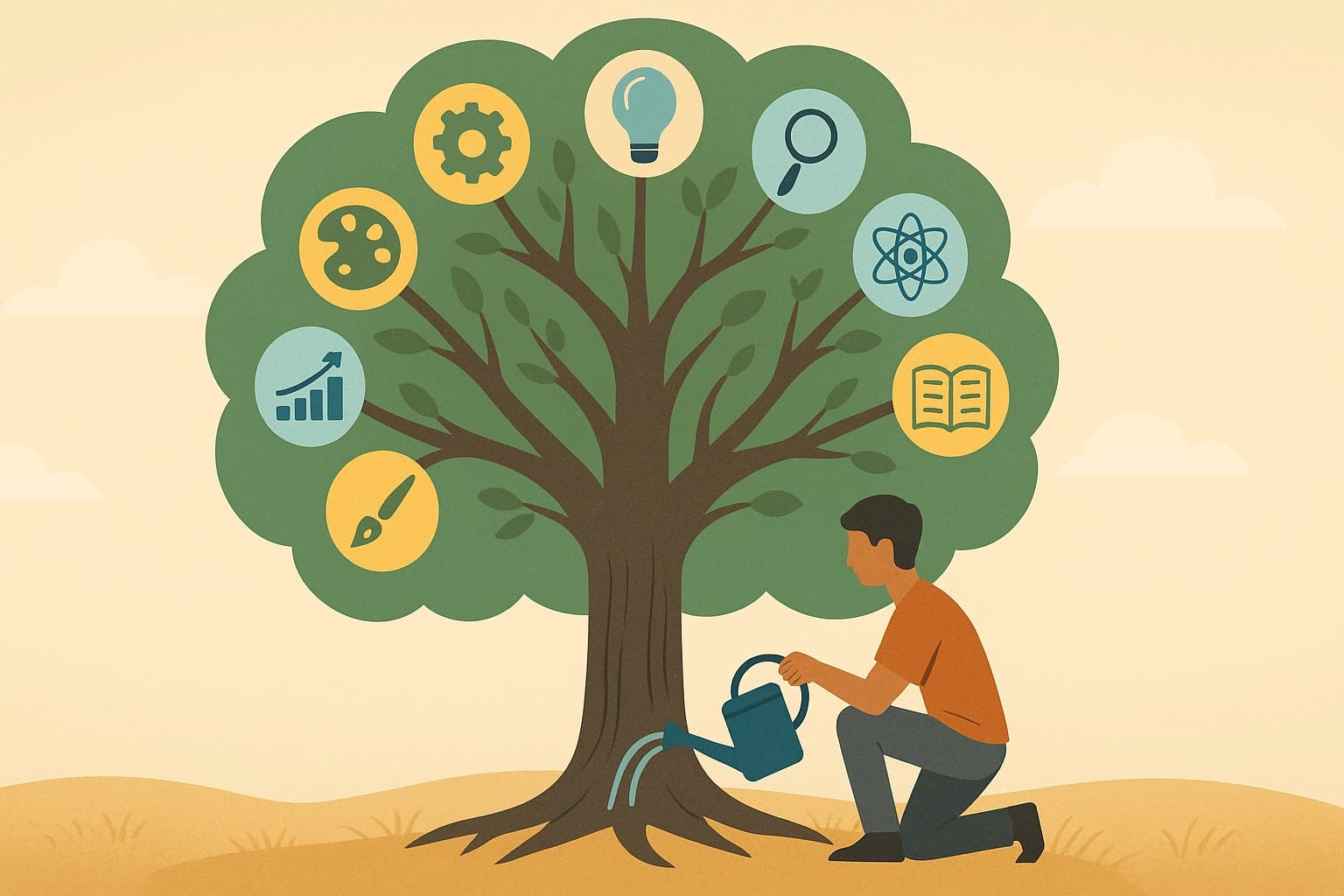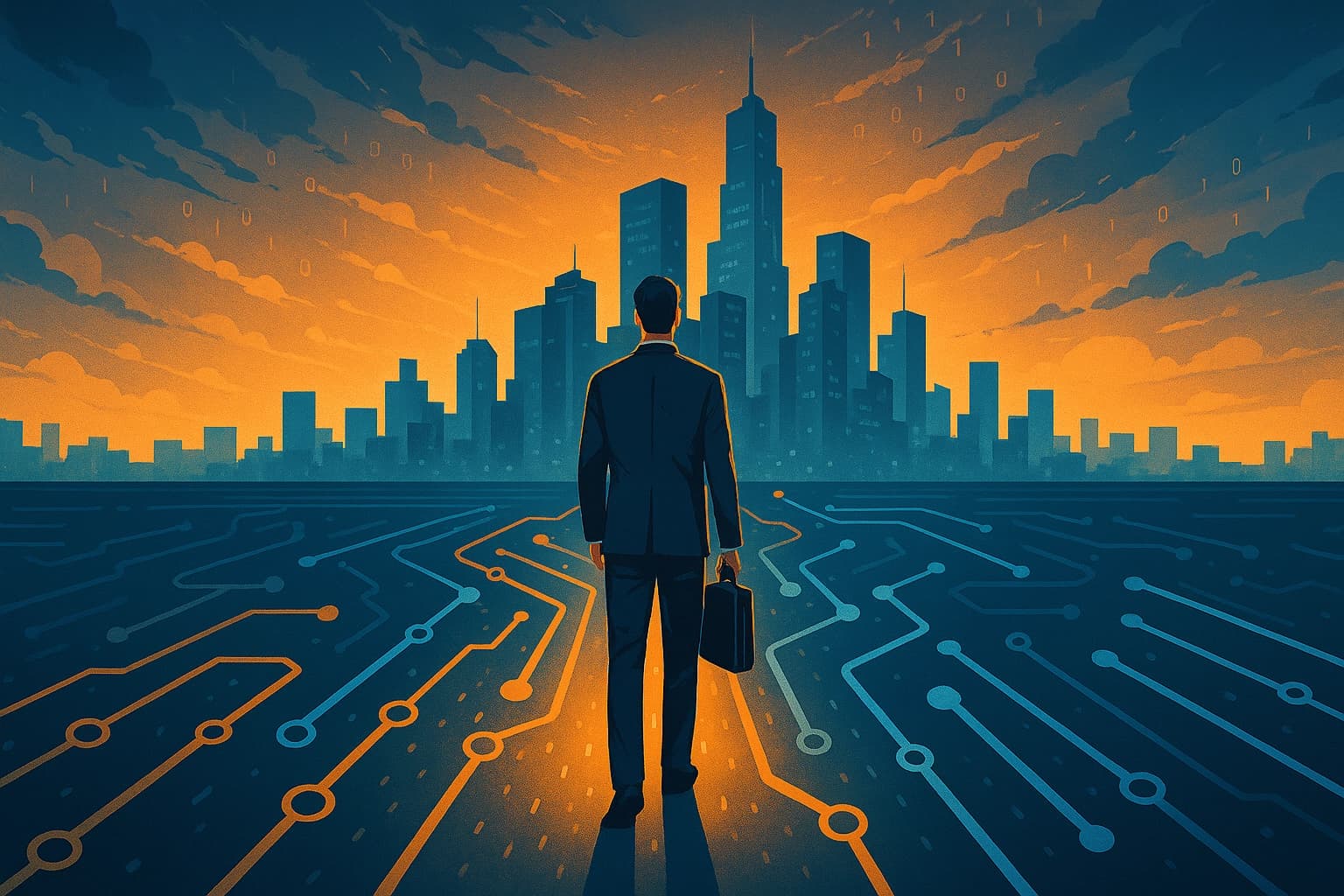
The Future Belongs to the Adaptable
The Future Belongs to the Adaptable
A World in Flux
Picture a student named Maya. She is twelve years old and dreams of becoming a graphic designer. By the time she finishes school, AI tools will design faster, cheaper, and with more precision than any human. The job she imagined may not even exist in the same form. But Maya will also have opportunities we cannot yet name. She might become a designer of immersive virtual worlds, a creator of AI-generated art styles, or a visual problem-solver for climate adaptation projects.
The difference between Maya thriving or struggling will come down to one thing. Her ability to adapt.
Introduction
As AI becomes deeply woven into the fabric of everyday life, many traditional roles will be automated, reshaped, or disappear altogether. At the same time, entirely new roles will emerge in areas we cannot yet predict. In this shifting landscape, the most valuable skill we can give the next generation is not mastery of a single subject for life. It is the ability to continuously learn, adapt, and reinvent themselves.
Our education system still prepares students for a world where you choose a career in your late teens and follow it for decades. That world is fading. We must prepare young people for constant evolution.
The Coming Wave of Job Transformation
The integration of AI, automation, and advanced robotics is not just an economic shift; it is a societal one.
Jobs based on routine, predictable tasks are most at risk. Roles that rely on judgement, creativity, and human empathy will remain valuable, yet they too will be transformed by technology. Entirely new career paths will appear, such as AI ethicists, augmented reality architects, and climate adaptation strategists.
The challenge is that we cannot predict these roles in detail. Relying on traditional one-track career preparation is becoming increasingly risky.
Why ‘Learning How to Learn’ Is the Ultimate Skill
In an unpredictable job market, adaptability becomes a superpower. Students should graduate not only knowing facts but also understanding how to acquire new skills quickly.
This requires embracing lifelong learning as a habit, not a stage of life. It involves learning from failure and iteration, and developing the confidence to step into unfamiliar fields and master new abilities on the fly. These are not just academic abilities; they are essential survival skills in an AI‑driven economy.
Schools as Innovation Incubators
We need to shift schools from being institutions that deliver facts to becoming launchpads for curiosity and problem-solving.
This transformation could include project based learning where students tackle real-world challenges. It should encourage exploration across disciplines, blending science with design or technology with social impact. Students should learn both entrepreneurship and intrapreneurship, which means innovating within organisations. AI literacy must become part of the curriculum so students can work with these tools, question them, and help shape their future use.
Most importantly, risk-taking and creative failure should be treated as essential steps towards innovation rather than signs of weakness.
Real World Models to Learn From
Some education systems and programmes are already showing what this future could look like. Finland’s phenomenon-based learning invites students to work on broad interdisciplinary themes instead of isolated subjects. High Tech High in California uses project-based learning tied to real community issues. Singapore’s SkillsFuture programme offers adults ongoing education credits so they can re‑skill throughout their lives.
These examples prove that adaptable, opportunity focused education is possible on a large scale.
Thriving in the Unknown
The future workforce will need more than engineers, doctors, or designers. It will need lifelong learners who can recognise opportunities, create solutions, and thrive in uncertainty.
If we redesign education now, moving away from rigid career paths towards adaptable, innovation driven learning, we can prepare today’s students for a future where curiosity, creativity, and courage are the most valuable assets.
The AI era does not have to be a threat to the next generation’s potential. With the right approach to education, it can become the greatest accelerator of human possibility we have ever seen.
Found this helpful? Share it!
Enjoyed this post? Subscribe to my newsletter for more insights on web development, career growth, and tech innovations.
Subscribe to NewsletterRelated Posts

Jack of Many Trades, Master of Learning
Explore how curiosity, versatility, and lifelong learning help professionals thrive in the age of AI. The true edge is adaptability, not specialisation.

Human + AI: The New Collaboration Skill
How working with AI shifts our process from building alone to exploring together and why the real skill now is collaboration.

Adaptability at Work: Thriving in the Age of AI
Why adaptability and creativity are the most valuable skills in a tech-driven workplace, with practical steps for teams and real examples.